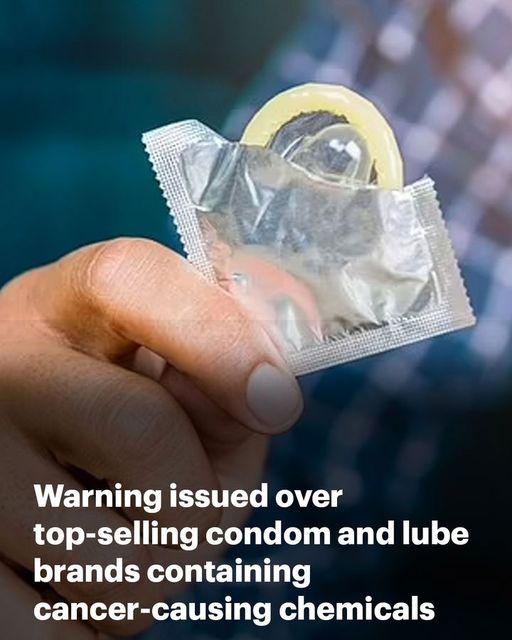A recent study has uncovered alarming levels of PFAS “forever chemicals“ in certain brands of condoms and lubricants, raising concerns about the safety of these commonly used products. Conducted by Mamavation, a consumer advocacy group, this research highlights the potential risks associated with exposure to these toxic substances in some of the most sensitive areas of the human body.1
What Are PFAS and Why Are They Concerning?

PFAS, or per- and polyfluoroalkyl substances, are a group of synthetic chemicals used in a wide range of products due to their resistance to water, oil, and heat. They are often referred to as “forever chemicals“ because they do not break down easily in the environment or in the human body, leading to accumulation over time.2 The presence of PFAS in everyday items like cookware, cosmetics, and even drinking water has been well-documented. However, their detection in sexual health products such as condoms and lubricants is particularly troubling due to the high absorption rate in the genital areas.
The Study’s Findings

Mamavation’s study involved testing 29 popular condoms and lubricants from 19 different brands in an EPA-certified laboratory. The results were concerning: 14% of the tested products showed indications of PFAS, with four detections above 10 parts per million (ppm) of organic fluorine, a marker for PFAS. Specifically, 12% of the condoms and 25% of the lubricants tested positive for these chemicals, with levels ranging from 13 ppm to 68 ppm.
One of the most notable findings was the detection of PFAS in well-known products such as Trojan Ultra Thin Condoms and KY Jelly Classic Water-Based Personal Lubricant. These products, which are widely trusted for their quality and safety, were found to contain levels of PFAS that could pose a risk to consumers.
Health Risks of PFAS Exposure

PFAS are associated with numerous health issues, including an increased risk of cancer, liver damage, thyroid disease, and reproductive problems.3 Linda Birnbaum, Scientist Emeritus and Former Director of the National Institute of Environmental Health Sciences, emphasized the unique risks posed by PFAS exposure in the genital area. “The vagina and penis are incredibly vascular areas, and dermal exposure to these areas is often higher than other places of the body,” she explained, urging manufacturers to eliminate these chemicals from their products immediately.
Moreover, PFAS are known to be endocrine disruptors and have been linked to reduced fertility in both men and women, as well as developmental issues in children. The long-term implications of such exposure, particularly through products meant to be safe and protective, underscore the need for greater transparency and regulation in the industry.
Potential Sources of Contamination

The presence of PFAS in condoms and lubricants could stem from various sources. Latex, a common material used in condoms, has been known to contain PFAS, particularly when processed with certain chemicals. Additionally, the manufacturing equipment, packaging, or even the lubricants used on condoms could introduce these contaminants into the final product.
Scott Belcher, Ph.D., an Associate Professor at North Carolina State University, pointed out that “fluoropolymers, such as polytetrafluoroethylene (PTFE), are extremely common forms of PFAS that could be contributing to the organic fluorine found in condoms and lubricants.” This highlights the complexity of identifying and eliminating these chemicals from the production process.
The Call for Action

Given the serious health risks associated with PFAS, there is a growing call for the condom and lubricant industry to address this issue head-on. Experts like Birnbaum and others recommend that manufacturers conduct their own thorough testing and take steps to remove PFAS from their supply chains. Consumers are also encouraged to choose products from brands that are transparent about their ingredients and committed to avoiding these harmful chemicals.
In conclusion, while the use of condoms and lubricants remains crucial for safe sexual health, this study serves as a reminder of the importance of being informed about the products we use. As awareness of PFAS continues to grow, both consumers and manufacturers must take steps to ensure that these “forever chemicals” are kept out of our most sensitive products.
